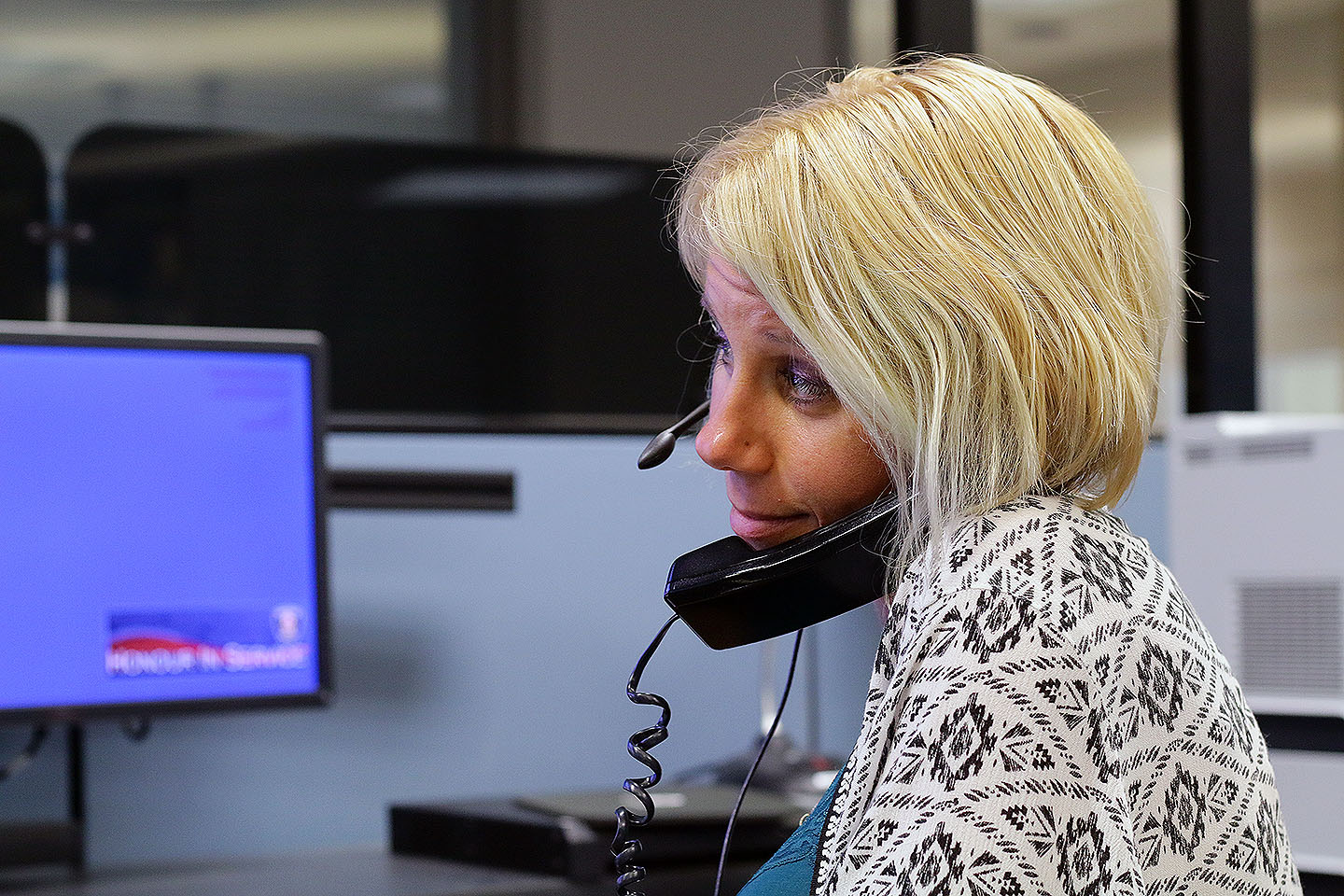Police, fire or ambulance, what is your emergency?
Every day police dispatchers field hundreds of emergency calls that come into the emergency 911 centre.
Dispatchers have to assess the situation of the callers, think quickly to help them and send emergency services to the scene. They are the first response when anyone calls 911. For this job, dispatchers must remain calm and provide assistance, whilst also taking down information to send to the responders so they can arrive prepared for each situation.
“It is not easy. A 911 communicator or dispatcher is always dealing with negative calls,” said Renee Rupert, a Windsor police dispatcher for 22 years. “No one calls the police station unless they have a problem.”
Police dispatchers are constantly fielding calls from the public, police officers, fire and ambulance while also monitoring 26 police radio channels.
“The three words that best describe the job are stressful, unpredictable and fulfilling,” said Lisa Vitale, who has been working as a police dispatcher for 14 years. “It is very busy at times and at other times the phones are dead. What I like about it is that there are no two days that are the same.”
Dispatchers work around 40 or more hours a week with opportunities for overtime and make around $80,000 a year.
Most police dispatchers go through a great deal of stress and every dispatcher has their own way of coping.
“I get up and tell the supervisor I’m going to the washroom but really I just want to go in there because it’s quiet and warm,” said Rupert. “I try to leave the room on my lunch to get away from the environment.”
Being the first to receive emergency calls means dispatchers are receiving information about a situation right as it is happening. They often hear conflicts and shouting in the background and have to continue to pry for information.
“As long as I do my best to ask the proper questions to keep both officers and citizens safe, then I’ve done my job,” said Vitale.
Both Vitale and Rupert agreed their job took away a part of who they used to be before they were hired. They learned to repress all their personal emotions in order to be most helpful on the phone.
Police dispatchers want their job to be recognized and respected as officers cannot do their jobs without them.



